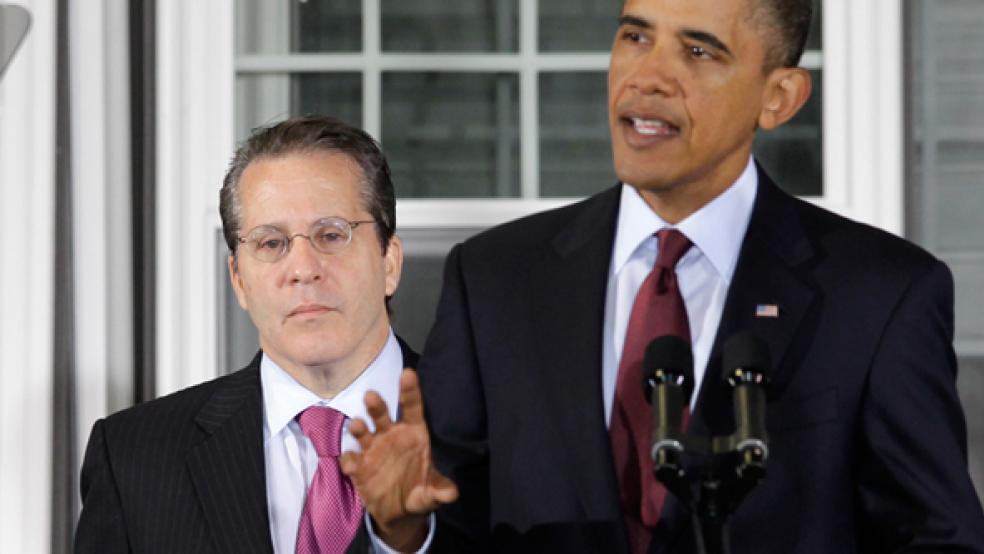President Obama named Treasury Department official Gene Sperling director of the National Economic Council on Friday, replacing Larry Summers and marking the latest in a series of shakeups among top White House staffers.
“He is a public servant who has devoted his life to making this economy work, and making it work specifically for middle-class families,” Obama said in a speech on Friday at a Landover, Md., window factory. “Few people bring the level of intelligence and sheer work ethic that Gene brings to every assignment he’s ever taken, and few do so with such decency and integrity.”
Sperling’s appointment is the latest among the president’s revolving door. Former Office of Management and Budget Director Peter Orszag stepped down in June. After Orszag came the departures of former Council of Economic Advisors chairwoman Christina Romer, National Economic Council director Larry Summers, senior adviser David Axelrod, chief of staff Rahm Emanuel, and press secretary Robert Gibbs, who will step down in February to serve as an adviser to Obama’s 2012 re-election campaign.
The 52-year-old Ann Arbor, Mich., native is no stranger to the White House, where he worked as an aide in the Clinton administration for both terms, and served as NEC Director from 1996 to 2000. Over those years, he was a central figure in reaching a balanced budget agreement in 1997, and in negotiating China’s entry into the World Trade Organization. After a stint as an economic policy fellow at the Council on Foreign Relations, Sperling circled back to government as senior counselor to Treasury Secretary Timothy Geithner, where he led deliberations with Senate Republicans on extending the Bush-era tax cuts.
Sperling is expected to be a key cog in the president’s push to foster job growth and hiring through business tax incentives, and by enabling easier access to credit.
The Business Roundtable, an organization of the nation’s top Chief Executive Officers, applauded Obama’s selection of Sperling. “With the serious economic challenges our nation continues to face — high unemployment, growing deficits and slow growth — Business Roundtable looks forward to working collaboratively with Mr. Sperling.”
Robert Greenstein, executive director of the Center on Budget and Policy Priorities, said we can expect Sperling to be central in crafting the administration’s approach to fiscal challenges and the political fallout associated with them. Greenstein describes Sperling as having both a head of political and legislative strategy — what he calls a rare mix. “He also obviously has intensive experience in how to develop and move policies for a Democratic president a time when the opposition party controlled both houses,” he said.
But Sperling is not without criticism. Some liberals worry that he is too closely tied to Wall Street interests and former Treasury secretary Robert Rubin, who was director of the NEC when Sperling was his deputy director in the early 1990s.
Rumblings around the blogosphere have called in to question the $887,727 in consulting profits Sperling collected from Goldman Sachs in 2008 and 2009 for setting up a charity project to aid women in third-world countries. But Greenstein, a liberal, says that is not the case. “As someone who had done the work he did in the Clinton administration, he could have gone to work in the financial market industry and made millions, but he did not do that,” Greenstein said. “The idea that he is some kind of Wall Street insider is simply wrong.
Similar controversy also dogged former NEC director Larry Summers, who recently returned to Harvard University, where he once served as president.


